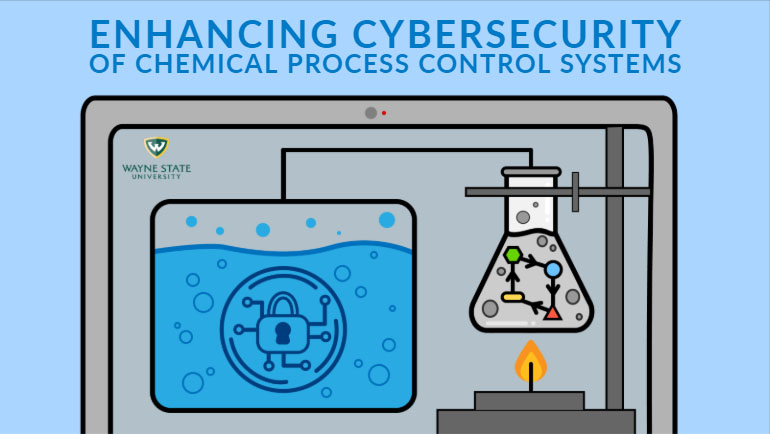Wayne State receives NSF grant to enhance cybersecurity of chemical process control systems

DETROIT – Smart manufacturing processes are becoming more automated with the help of algorithms that aim to boost profits, reduce resource use and decrease human error. In industries using chemical reactions, separation and transport, these smart manufacturing processes are expected to enhance production efficiency. In health care, water treatment and irrigation systems, smart manufacturing is also making an impact; however, they face the challenge of cyberattacks on control systems that perform communication and computation to enable automation of these systems.
With the help of a three-year, $500,000 grant from the National Science Foundation, a research team from Wayne State University will comprehensively evaluate the characteristics of cyberattacks for processes involving chemical processes of different types, and will develop fundamental advances in control theory and algorithms for enhancing cybersecurity of control systems for these processes through control designs integrated with other frameworks such as detection algorithms.
Led by Helen Durand, Ph.D., assistant professor of chemical engineering and materials science in Wayne State’s College of Engineering, the team of researchers will work to design stronger safeguards against automation systems attacks that can impact critical factors such as safety, profitability or production volume.
“Our research will develop algorithms that detect cyberattacks and alert company personnel to their presence for chemical processes described by complex dynamic models,” said Durand. “Our project seeks to characterize the conditions under which the process automation algorithms can be made resilient to cyberattacks on various aspects of the automation systems so that attempted attacks are not successful.”
Durand and her team will determine the conditions under which cybersecurity enhancement is needed. They will create a mathematical formalization of different types of undesirable behaviors for various chemical processes where cyberattacks may occur. In addition, they will develop detection techniques that will guarantee a cyberattack will not create an undesirable behavior if it does penetrate certain information technology defenses. The team will also develop novel sensing and control capabilities for cyber-physical systems to increase flexibility of chemical processes to understand how they may be cyber-attacked.
The team’s work will lead to important processes for detecting cyberattacks to chemical processes in manufacturing industries that will alert company personnel to their presence in hopes to avoid costly — and potentially deadly — disasters.
The grant number for this National Science Foundation award, “Enhancing Cybersecurity of Chemical Process Control Systems,” is 1932026.
###
About Wayne State University
Wayne State University is one of the nation’s pre-eminent public research universities in an urban setting. Through its multidisciplinary approach to research and education, and its ongoing collaboration with government, industry and other institutions, the university seeks to enhance economic growth and improve the quality of life in the city of Detroit, state of Michigan and throughout the world. For more information about research at Wayne State University, visit research.wayne.edu.
Contact info
Julie O'Connor
Director, Research Communications
Phone: 313-577-8845
Email: julie.oconnor@wayne.edu